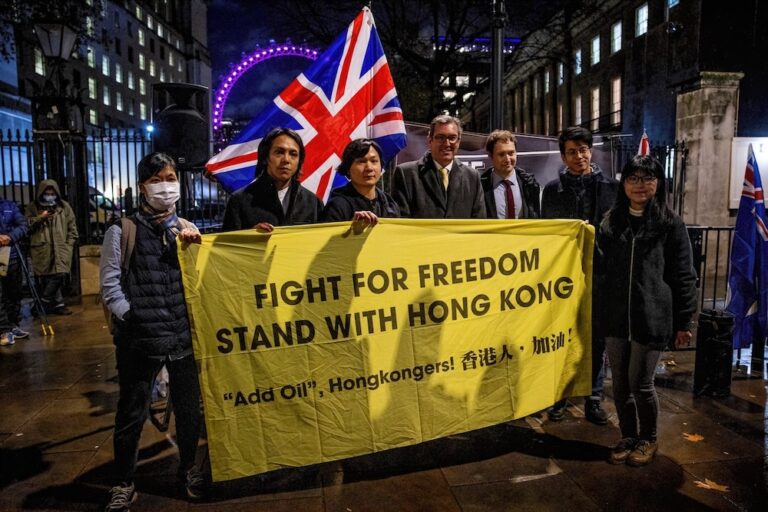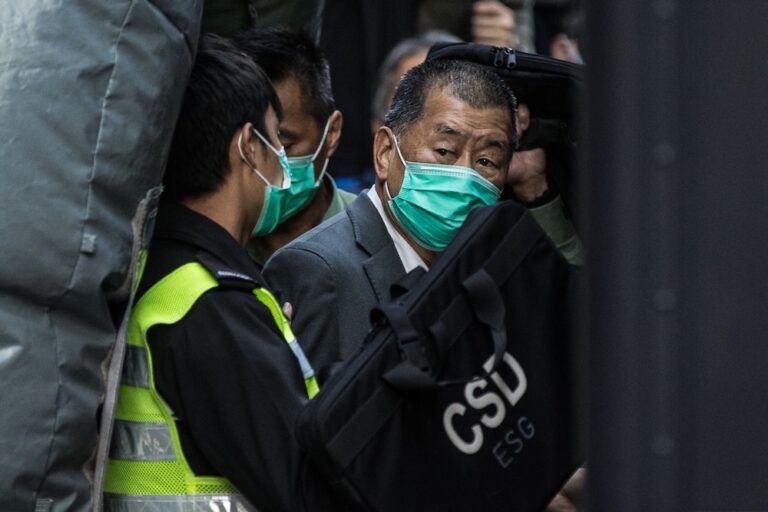As political tension between Hong Kong and Beijing increases, the HKJA expects further deterioration in press freedom in the years to come. The organisation has established a Self-censorship Monitoring Committee to look into complaints by members of the press.
“The year under review has been the darkest for press freedom for several decades.” This is the stark opening to the latest Annual Report published by the Hong Kong Journalists Association (HKJA) titled Press Freedom Under Siege. As political tension between Hong Kong and Beijing increases, the HKJA expects further deterioration in press freedom in the years to come.
The press has experienced grave attacks both physical and otherwise in the past 12 months, according to the report.
The alarming events include the brutal chopper attack on former Ming Pao Daily News chief editor Kevin Lau, the sacking of talk-show host Li Wei-ling and the removal of other prominent journalists from senior editorial positions, advertising boycotts launched against Apple Daily and am730, and the refusal of the government to issue a free-to-air TV licence to Hong Kong Television Network, which shows the way that the government can use licensing as a weapon against the media.
This came as the political environment deteriorated amid debate over how the chief executive should be elected by the people in 2017. Beijing has increased pressure on Hong Kong, issuing a white paper that appears to limit the Special Administrative Region’s autonomy and lecturing media representatives on the need to increase their coverage of opposition to the pan-democratic Occupy Central movement and to report on the mainland’s economic development in an objective and rational manner. Such comments pile pressure on the media.
These developments further narrow the limited press freedom in place since the chief executive Leung Chun-ying took office in 2012. Indeed, different international press freedom indexes have shown that Hong Kong’s ranking has slipped. Further, according to Hong Kong’s first press freedom index – launched by the HKJA – journalists rated press freedom at 42 on a 100-point scale – which is considered to be on the low side. They also expressed concern about self-censorship and pressure from media owners and management.
The report analyses these developments, with particular emphasis on attacks on journalists, sackings and job transfers, the advertising boycott and the frustrated efforts of Hong Kong Television Network to win a TV licence. It also examines the role of internet news sites in giving Hong Kong residents an alternative take on the news and the latest on the law reform front – primarily the glacial moves to enact freedom of information legislation, a long-time demand by the HKJA.
The report calls on the Leung Chun-ying administration to fully respect the independence of the media. In particular, it calls on the government to take all possible measures to prevent violence against journalists and pursue perpetrators, including masterminds; to rethink its decision on denying a free-to-air TV licence to Hong Kong Television Network; to make a decision on TV and radio licence renewal which encourages media diversity; to enact freedom of information and archives legislation as a matter of urgency; and to review its policy on law reform to ensure that freedom of expression concerns are taken into full account.
The HKJA also calls on media owners and top executives to respect the right of journalists to carry out their duties without pressure and to expose details of advertising boycotts to discourage the practice which threatens the development of independent media in Hong Kong.
In view of the deterioration, on 6 July 2014 the HKJA announced the establishment of a Self-censorship Monitoring Committee to investigate complaints by members of the press. The committee, which is composed of journalists, academics and lawyers, will make public confirmed self-censorship cases. The committee will hopefully increase public awareness of that by telling them what has been taken out from the media.


